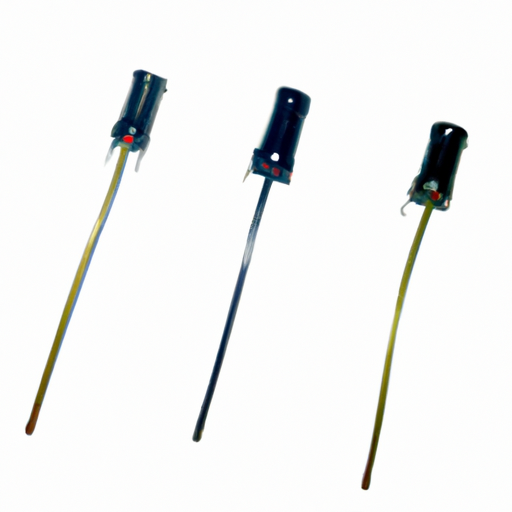What are the Advantages of Grounding Resistor Products?

I. Introduction
In the realm of electrical engineering, grounding is a critical aspect that ensures the safety and reliability of electrical systems. Grounding resistors play a pivotal role in this process, providing a controlled path for fault currents and enhancing the overall performance of electrical installations. This blog post will delve into the advantages of grounding resistor products, highlighting their importance in various applications and the benefits they offer to both safety and system reliability.
II. Understanding Grounding Resistors
A. Explanation of Grounding and Its Purpose
Grounding refers to the process of connecting electrical systems to the earth or a conductive body that serves as a reference point for voltage. The primary purpose of grounding is to protect people and equipment from electrical faults, such as short circuits or lightning strikes. By providing a safe path for excess current to flow, grounding minimizes the risk of electrical shock and equipment damage.
B. Types of Grounding Resistors
Grounding resistors can be categorized into several types, each serving a specific function within electrical systems:
1. **Neutral Grounding Resistors (NGR)**: These are used to connect the neutral point of a transformer or generator to the ground. NGRs limit the fault current during a ground fault, thereby protecting equipment and ensuring safety.
2. **System Grounding Resistors**: These resistors are employed to ground the entire electrical system, providing a reference point for voltage and enhancing system stability.
3. **Protective Grounding Resistors**: These are used to protect sensitive equipment from transient overvoltages and other electrical disturbances.
C. How Grounding Resistors Function in Electrical Systems
Grounding resistors function by introducing a controlled resistance into the grounding path. This resistance limits the amount of fault current that can flow during a fault condition, reducing the risk of damage to equipment and ensuring that protective devices, such as circuit breakers, operate effectively. By stabilizing the system voltage and reducing transient overvoltages, grounding resistors contribute to the overall reliability of electrical systems.
III. Advantages of Grounding Resistor Products
A. Enhanced Safety
1. **Protection Against Electrical Shock**: Grounding resistors provide a safe path for fault currents, significantly reducing the risk of electrical shock to personnel. By limiting the fault current, these resistors help ensure that any potential electrical hazards are mitigated.
2. **Mitigation of Fault Currents**: In the event of a ground fault, grounding resistors limit the magnitude of the fault current, preventing excessive currents from damaging equipment or causing fires. This is particularly important in industrial settings where high voltages and currents are present.
3. **Prevention of Equipment Damage**: By controlling fault currents and stabilizing system voltage, grounding resistors help protect sensitive equipment from damage. This is crucial in environments where expensive machinery and electronic devices are in use.
B. Improved System Reliability
1. **Reduction of Transient Overvoltages**: Grounding resistors help to dampen transient overvoltages that can occur during switching operations or lightning strikes. By limiting these voltage spikes, grounding resistors enhance the reliability of electrical systems.
2. **Stabilization of System Voltage**: By providing a reference point for voltage, grounding resistors help stabilize the overall system voltage. This is essential for the proper functioning of electrical equipment and for maintaining consistent performance.
3. **Enhanced Performance of Protective Devices**: Grounding resistors improve the performance of protective devices, such as circuit breakers and relays, by ensuring that they operate correctly during fault conditions. This enhances the overall safety and reliability of the electrical system.
C. Compliance with Standards and Regulations
1. **Meeting Industry Standards (IEEE, NEC, etc.)**: Grounding resistor products are designed to meet various industry standards, such as those set by the Institute of Electrical and Electronics Engineers (IEEE) and the National Electrical Code (NEC). Compliance with these standards is essential for ensuring the safety and reliability of electrical systems.
2. **Legal Requirements for Grounding Systems**: Many jurisdictions have legal requirements for grounding systems, particularly in commercial and industrial settings. Grounding resistor products help organizations meet these requirements, reducing the risk of legal liabilities.
D. Cost-Effectiveness
1. **Long-Term Savings Through Reduced Equipment Failure**: By preventing equipment damage and minimizing downtime, grounding resistors can lead to significant long-term savings. The cost of replacing damaged equipment or repairing electrical systems can far exceed the initial investment in grounding resistor products.
2. **Lower Insurance Premiums Due to Enhanced Safety**: Organizations that implement effective grounding solutions may benefit from lower insurance premiums. Insurers often recognize the reduced risk associated with well-grounded electrical systems, leading to potential cost savings for businesses.
E. Flexibility and Customization
1. **Availability of Various Resistor Ratings and Configurations**: Grounding resistor products come in a range of ratings and configurations, allowing for customization based on specific application requirements. This flexibility ensures that organizations can select the most appropriate solution for their needs.
2. **Adaptability to Different Applications and Environments**: Grounding resistors can be tailored to suit various applications, from industrial settings to renewable energy systems. This adaptability makes them a valuable component in diverse electrical installations.
F. Environmental Benefits
1. **Reduction of Electromagnetic Interference (EMI)**: Grounding resistors help reduce electromagnetic interference, which can disrupt the operation of sensitive electronic equipment. By minimizing EMI, grounding resistors contribute to a more stable and efficient electrical environment.
2. **Contribution to Sustainable Electrical Practices**: By enhancing the safety and reliability of electrical systems, grounding resistors support sustainable electrical practices. This is particularly important in the context of renewable energy systems, where effective grounding is essential for optimal performance.
IV. Applications of Grounding Resistor Products
Grounding resistor products find applications across various sectors, including:
A. Industrial Settings
In industrial environments, grounding resistors are essential for protecting heavy machinery and ensuring the safety of personnel. They help mitigate the risks associated with high voltages and fault currents.
B. Commercial Buildings
Grounding resistors are commonly used in commercial buildings to protect electrical systems and ensure compliance with safety regulations. They play a crucial role in maintaining the reliability of electrical installations.
C. Renewable Energy Systems (Solar, Wind)
In renewable energy systems, grounding resistors are vital for ensuring the safety and performance of solar panels and wind turbines. They help manage fault currents and stabilize system voltage.
D. Data Centers and IT Infrastructure
Grounding resistors are critical in data centers, where sensitive electronic equipment is housed. They help protect against electrical disturbances and ensure the reliability of IT infrastructure.
E. Transportation Systems (Railways, Airports)
In transportation systems, grounding resistors are used to protect electrical systems from faults and ensure the safety of passengers and equipment. They are particularly important in high-voltage applications, such as railways and airports.
V. Challenges and Considerations
While grounding resistor products offer numerous advantages, there are challenges and considerations to keep in mind:
A. Proper Selection and Sizing of Grounding Resistors
Selecting the appropriate grounding resistor and sizing it correctly is crucial for optimal performance. Factors such as system voltage, fault current levels, and application requirements must be considered.
B. Maintenance and Monitoring of Grounding Systems
Regular maintenance and monitoring of grounding systems are essential to ensure their continued effectiveness. This includes inspecting grounding resistors for wear and tear and testing their performance.
C. Potential Drawbacks and Limitations
While grounding resistors provide significant benefits, they may also have limitations, such as increased heat generation during fault conditions. Understanding these limitations is important for effective system design.
VI. Conclusion
In conclusion, grounding resistor products offer a multitude of advantages that enhance the safety, reliability, and performance of electrical systems. From protecting against electrical shock to ensuring compliance with industry standards, these products play a vital role in various applications. Investing in quality grounding solutions is essential for organizations looking to safeguard their electrical systems and minimize risks. As technology continues to evolve, the future of grounding practices will likely see advancements that further improve safety and efficiency in electrical installations.
VII. References
1. IEEE Standards Association. (n.d.). IEEE Std 142-2007, IEEE Green Book: Grounding of Industrial and Commercial Power Systems.
2. National Fire Protection Association (NFPA). (n.d.). National Electrical Code (NEC).
3. U.S. Department of Energy. (n.d.). Grounding and Bonding for Photovoltaic Systems.
4. Various articles and studies on grounding systems and electrical safety.
This comprehensive exploration of grounding resistor products highlights their critical role in electrical systems, emphasizing the importance of proper grounding practices for safety and reliability.
What are the Advantages of Grounding Resistor Products?

I. Introduction
In the realm of electrical engineering, grounding is a critical aspect that ensures the safety and reliability of electrical systems. Grounding resistors play a pivotal role in this process, providing a controlled path for fault currents and enhancing the overall performance of electrical installations. This blog post will delve into the advantages of grounding resistor products, highlighting their importance in various applications and the benefits they offer to both safety and system reliability.
II. Understanding Grounding Resistors
A. Explanation of Grounding and Its Purpose
Grounding refers to the process of connecting electrical systems to the earth or a conductive body that serves as a reference point for voltage. The primary purpose of grounding is to protect people and equipment from electrical faults, such as short circuits or lightning strikes. By providing a safe path for excess current to flow, grounding minimizes the risk of electrical shock and equipment damage.
B. Types of Grounding Resistors
Grounding resistors can be categorized into several types, each serving a specific function within electrical systems:
1. **Neutral Grounding Resistors (NGR)**: These are used to connect the neutral point of a transformer or generator to the ground. NGRs limit the fault current during a ground fault, thereby protecting equipment and ensuring safety.
2. **System Grounding Resistors**: These resistors are employed to ground the entire electrical system, providing a reference point for voltage and enhancing system stability.
3. **Protective Grounding Resistors**: These are used to protect sensitive equipment from transient overvoltages and other electrical disturbances.
C. How Grounding Resistors Function in Electrical Systems
Grounding resistors function by introducing a controlled resistance into the grounding path. This resistance limits the amount of fault current that can flow during a fault condition, reducing the risk of damage to equipment and ensuring that protective devices, such as circuit breakers, operate effectively. By stabilizing the system voltage and reducing transient overvoltages, grounding resistors contribute to the overall reliability of electrical systems.
III. Advantages of Grounding Resistor Products
A. Enhanced Safety
1. **Protection Against Electrical Shock**: Grounding resistors provide a safe path for fault currents, significantly reducing the risk of electrical shock to personnel. By limiting the fault current, these resistors help ensure that any potential electrical hazards are mitigated.
2. **Mitigation of Fault Currents**: In the event of a ground fault, grounding resistors limit the magnitude of the fault current, preventing excessive currents from damaging equipment or causing fires. This is particularly important in industrial settings where high voltages and currents are present.
3. **Prevention of Equipment Damage**: By controlling fault currents and stabilizing system voltage, grounding resistors help protect sensitive equipment from damage. This is crucial in environments where expensive machinery and electronic devices are in use.
B. Improved System Reliability
1. **Reduction of Transient Overvoltages**: Grounding resistors help to dampen transient overvoltages that can occur during switching operations or lightning strikes. By limiting these voltage spikes, grounding resistors enhance the reliability of electrical systems.
2. **Stabilization of System Voltage**: By providing a reference point for voltage, grounding resistors help stabilize the overall system voltage. This is essential for the proper functioning of electrical equipment and for maintaining consistent performance.
3. **Enhanced Performance of Protective Devices**: Grounding resistors improve the performance of protective devices, such as circuit breakers and relays, by ensuring that they operate correctly during fault conditions. This enhances the overall safety and reliability of the electrical system.
C. Compliance with Standards and Regulations
1. **Meeting Industry Standards (IEEE, NEC, etc.)**: Grounding resistor products are designed to meet various industry standards, such as those set by the Institute of Electrical and Electronics Engineers (IEEE) and the National Electrical Code (NEC). Compliance with these standards is essential for ensuring the safety and reliability of electrical systems.
2. **Legal Requirements for Grounding Systems**: Many jurisdictions have legal requirements for grounding systems, particularly in commercial and industrial settings. Grounding resistor products help organizations meet these requirements, reducing the risk of legal liabilities.
D. Cost-Effectiveness
1. **Long-Term Savings Through Reduced Equipment Failure**: By preventing equipment damage and minimizing downtime, grounding resistors can lead to significant long-term savings. The cost of replacing damaged equipment or repairing electrical systems can far exceed the initial investment in grounding resistor products.
2. **Lower Insurance Premiums Due to Enhanced Safety**: Organizations that implement effective grounding solutions may benefit from lower insurance premiums. Insurers often recognize the reduced risk associated with well-grounded electrical systems, leading to potential cost savings for businesses.
E. Flexibility and Customization
1. **Availability of Various Resistor Ratings and Configurations**: Grounding resistor products come in a range of ratings and configurations, allowing for customization based on specific application requirements. This flexibility ensures that organizations can select the most appropriate solution for their needs.
2. **Adaptability to Different Applications and Environments**: Grounding resistors can be tailored to suit various applications, from industrial settings to renewable energy systems. This adaptability makes them a valuable component in diverse electrical installations.
F. Environmental Benefits
1. **Reduction of Electromagnetic Interference (EMI)**: Grounding resistors help reduce electromagnetic interference, which can disrupt the operation of sensitive electronic equipment. By minimizing EMI, grounding resistors contribute to a more stable and efficient electrical environment.
2. **Contribution to Sustainable Electrical Practices**: By enhancing the safety and reliability of electrical systems, grounding resistors support sustainable electrical practices. This is particularly important in the context of renewable energy systems, where effective grounding is essential for optimal performance.
IV. Applications of Grounding Resistor Products
Grounding resistor products find applications across various sectors, including:
A. Industrial Settings
In industrial environments, grounding resistors are essential for protecting heavy machinery and ensuring the safety of personnel. They help mitigate the risks associated with high voltages and fault currents.
B. Commercial Buildings
Grounding resistors are commonly used in commercial buildings to protect electrical systems and ensure compliance with safety regulations. They play a crucial role in maintaining the reliability of electrical installations.
C. Renewable Energy Systems (Solar, Wind)
In renewable energy systems, grounding resistors are vital for ensuring the safety and performance of solar panels and wind turbines. They help manage fault currents and stabilize system voltage.
D. Data Centers and IT Infrastructure
Grounding resistors are critical in data centers, where sensitive electronic equipment is housed. They help protect against electrical disturbances and ensure the reliability of IT infrastructure.
E. Transportation Systems (Railways, Airports)
In transportation systems, grounding resistors are used to protect electrical systems from faults and ensure the safety of passengers and equipment. They are particularly important in high-voltage applications, such as railways and airports.
V. Challenges and Considerations
While grounding resistor products offer numerous advantages, there are challenges and considerations to keep in mind:
A. Proper Selection and Sizing of Grounding Resistors
Selecting the appropriate grounding resistor and sizing it correctly is crucial for optimal performance. Factors such as system voltage, fault current levels, and application requirements must be considered.
B. Maintenance and Monitoring of Grounding Systems
Regular maintenance and monitoring of grounding systems are essential to ensure their continued effectiveness. This includes inspecting grounding resistors for wear and tear and testing their performance.
C. Potential Drawbacks and Limitations
While grounding resistors provide significant benefits, they may also have limitations, such as increased heat generation during fault conditions. Understanding these limitations is important for effective system design.
VI. Conclusion
In conclusion, grounding resistor products offer a multitude of advantages that enhance the safety, reliability, and performance of electrical systems. From protecting against electrical shock to ensuring compliance with industry standards, these products play a vital role in various applications. Investing in quality grounding solutions is essential for organizations looking to safeguard their electrical systems and minimize risks. As technology continues to evolve, the future of grounding practices will likely see advancements that further improve safety and efficiency in electrical installations.
VII. References
1. IEEE Standards Association. (n.d.). IEEE Std 142-2007, IEEE Green Book: Grounding of Industrial and Commercial Power Systems.
2. National Fire Protection Association (NFPA). (n.d.). National Electrical Code (NEC).
3. U.S. Department of Energy. (n.d.). Grounding and Bonding for Photovoltaic Systems.
4. Various articles and studies on grounding systems and electrical safety.
This comprehensive exploration of grounding resistor products highlights their critical role in electrical systems, emphasizing the importance of proper grounding practices for safety and reliability.













